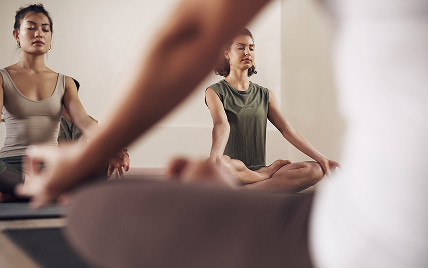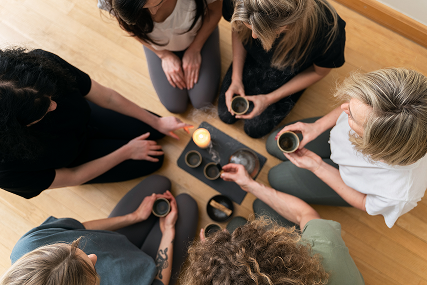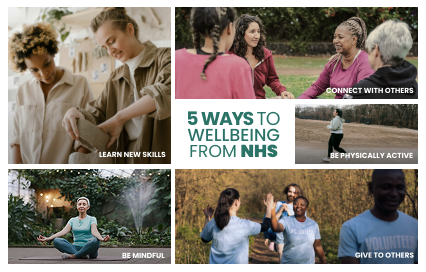
As we approach National Self Care Week (17-23 November 2025), it’s the perfect opportunity to reflect on how we look after our own physical and mental wellbeing. This year’s theme, “Mind and Body,” reminds us that true health encompasses both aspects of our lives, with a particular focus on the wide-ranging benefits of physical activity and movement.
What is National Self Care Week?
National Self Care Week is the UK’s annual awareness campaign that focuses on embedding support for self-care across communities, families, and generations. Organised by the Self Care Forum since 2011, this initiative has grown from a health sector campaign to a nationwide movement.
The World Health Organization defines self-care as individuals, families, and communities promoting and maintaining their own health, preventing disease, and coping with illness and disability, with or without the support of a health worker. It’s about empowering people to be active agents in their own health and wellbeing, giving them choice and access to healthcare wherever and whenever they need it.

Why Self Care Matters Now More Than Ever
The statistics paint a sobering picture of why self-care is so crucial. In England and Wales during 2022, the Office for National Statistics reported there were 125,612 avoidable deaths from causes considered treatable or preventable with timely healthcare or public health interventions. Many chronic, non-communicable conditions such as heart disease, obesity, type 2 diabetes, and some cancers are preventable with the right support, education, and lifestyle changes.

The NHS Five Ways to Wellbeing

At the heart of self-care practice are the NHS Five Ways to Wellbeing. Evidence-based actions developed by the New Economics Foundation that can significantly improve mental health and overall wellbeing:
Connect with other people: Build strong relationships with family, friends, colleagues, and neighbours. Social connections help build a sense of belonging and self-worth, provide emotional support, and create opportunities to share positive experiences. Even small gestures like a phone call to a friend or a conversation with a neighbour can make a meaningful difference.
Be physically active: Physical activity isn’t just good for your body. It improves your mood, raises self-esteem, and causes positive chemical changes in your brain. The good news? You don’t need intense workouts to benefit. Even ten minutes of physical activity, whether it’s a walk, swimming, or dancing, can boost your mental wellbeing. Read here about exercise such as running and other aerobic exercises to help get you moving and improve your fitness.
Learn new skills: Learning new skills builds confidence, gives you a sense of purpose, and helps connect you with others. This doesn’t need to be formal education, it could be trying a new recipe, taking up a hobby, learning a language, or even fixing something at home.
Give to others: Acts of kindness, whether small or large, feel good for both giver and receiver. Volunteer in your community, offer help to a friend, or simply smile at someone. Giving creates connections and enhances wellbeing for everyone involved.
Pay attention to the present moment: Being aware of yourself and your surroundings in the present moment can help improve your mental wellbeing. This includes focussing on your thoughts and feelings, your body, and the world around you in this moment right now. Some people call this awareness “mindfulness”, and this can help you enjoy life more and understand yourself better.
Practical Self Care Steps You Can Take Today
Self-care doesn’t require dramatic lifestyle overhauls. Small, consistent actions can create lasting positive change:
- Stock your medicine cabinet: Be prepared to manage common ailments like coughs, colds, and headaches at home. Just five minutes checking your supplies can help you respond quickly to minor illnesses.
- Know your pharmacy: Community pharmacists are excellent sources of advice for many common health concerns. They can help you manage minor ailments without needing a GP appointment, freeing up vital NHS resources.
- Prioritise sleep: Quality sleep is fundamental to both physical and mental health. Establish regular sleep routines and create a restful environment.
- Make movement part of your day: Find physical activities you enjoy and build them into your routine. Whether it’s walking during lunch breaks, taking the stairs, or joining a local sports group, every bit of movement counts.
- Stay connected: Make time for meaningful relationships. Schedule regular catchups with friends and family, even if it’s just a quick video call.

Making Self Care Your Everyday Habit
National Self Care Week is an excellent catalyst for change, but the real goal is making self-care a daily habit throughout the year. Regular self-care can build your strength and resilience, improve focus, strengthen relationships, and provide a more positive outlook on life.
Remember, practising self-care benefits not just you, but your family, your community, and the NHS. When you’re unsure whether you need professional medical help, NHS 111 and the NHS website (www.nhs.uk) offer valuable guidance for non-emergency situations.
This Self Care Week, take a moment to consider what small changes you could make to better care for your mind and body. Whether it’s committing to a daily walk, reaching out to reconnect with friends, or simply being more mindful of your wellbeing needs, every step towards better self-care is a step towards a healthier, happier you.
This article is intended for informational purposes only and does not constitute medical advice. Please consult with a healthcare professional for personalised medical guidance.









